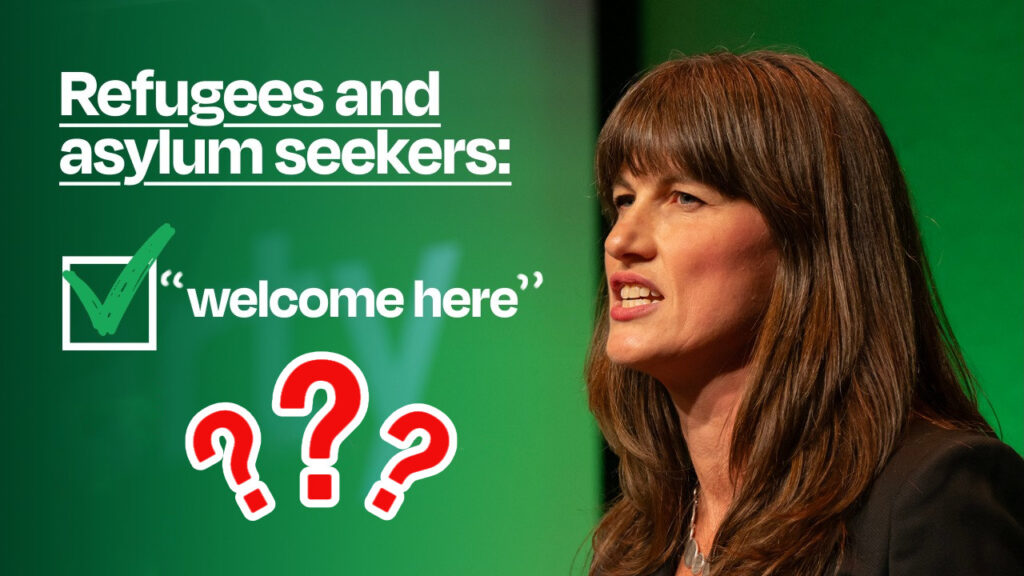I don’t think there can be much doubt that print media is all singing off the same anti-White hymn sheet these days. There’s not much difference in the narrative being pushed, just the words used to make it depending on who the target audience is. So after The Guardian’s latest attempt to attack women for being traditional, the one that Claire lambasted in her article, comes the king of the broadsheets, The Times, with its anti-White siren blaring. Once again, womanhood is under attack, but it’s the children in the firing line this time.
The piece, titled “The nuclear family is over. We should raise our kids in communes”, is written by very obviously childless Charlotte Ivers. Her first paragraph is a long-winded way of suggesting that she wants all the praises of motherhood; she wants a child. But only when it suits her. She doesn’t want to put in the effort that women have done for centuries; she wants it easy so she can still go to work and write disgusting garbage like this.
She and her friend, a podcaster who is “basically a communist” (I mean, who would’ve guessed), came up with this ludicrous idea while drinking one night. They discussed this fantastic idea that they and their friends, presumably all childless, could have their kids around the same time and raise them all as a group, helping each other out in times of need, taking the kids on certain days, things like that, in a little commune. Most normal people would call this “family and friends helping out”, and many actual parents, not wannabes like these two, would say that this system has been around for a very long time.
She does admit to being a bit drunk while this story takes place. However, a common theme occurs throughout her piece: regardless of whether or not this has been written in jest, it’s plain to see that Charlotte isn’t ready for one key element of motherhood, sacrifice. Lines such as: “Then we could spend the rest of the week in the pub while our mates picked up the slack”, and: “I still can’t help but think about children in terms of everything I’d have to give up”. These are very telling lines; it reveals the selfish and work-shy attitude of the woman, something she seems keen to brag about. Why? Possibly so many other women read this, copy her, then when it all turns out to be wrong, she’s not on her own. A safety in numbers thing?
She talks about a Conservative peer, Baroness Jenkin, who lives with her extended family. She talks about how this woman, whose children have already left home, has a “full and joyful” life. Yes, that’s because she is a mother and has a family around her. These things stare Charlotte in the face, but she refuses to see them. Because it means giving up things she thinks are essential for something she knows is more important.
Again, another issue comes up that has an obvious solution. She says that although extended families have access to free childcare, “people like me — people in big cities with white-collar jobs — do not”. The wonderful city she lives in deters her from having children, as does her white-collar job. But clearly, having kids is something she wants. So the solution is obvious: leave the city and your position and live as we do. You’ll find a way to make it work.
She finishes by saying someone else can look after her kids while she is in the pub. But before this, she suggests the nuclear family doesn’t offer a solution. It does. Any parent living in the real world can tell you this. The trick is, real parents are happy to sacrifice for their children. Real parents know that when children come along, life changes. Charlotte doesn’t know this. She is a broken human being, caught up in a world of distraction and nonsense, where her maternal urges are suppressed, and her innate drive to put her children before herself has been suppressed.
She’s not alone; many women are looking for ridiculous “how can I have kids without having any responsibility” schemes. They hear the call of motherhood, but Facebook and alcohol are louder. An honest government would introduce natalist policies to get women like Charlotte out of the rat race, away from the booze and pointless city jobs and into a loving relationship with her children. Our government should incentivise this end goal, a mother and her children, and it would be if the government were remotely interested in its people and their wellbeing.
Motherhood is a sacred and special thing for our people. As a father, I can tell you from experience that seeing a mother bonded with her children is quite magical. It beats any night out with your friends. Yes, it’s hard work being a parent. No, you can’t always go out to the pub; you can’t stay up until early morning playing games; you can’t only think about yourself. But when you are a traditional parent, it turns out that you don’t want those things anyway.
Hopefully, Charlotte, and women like her, can realise this before it’s too late.


